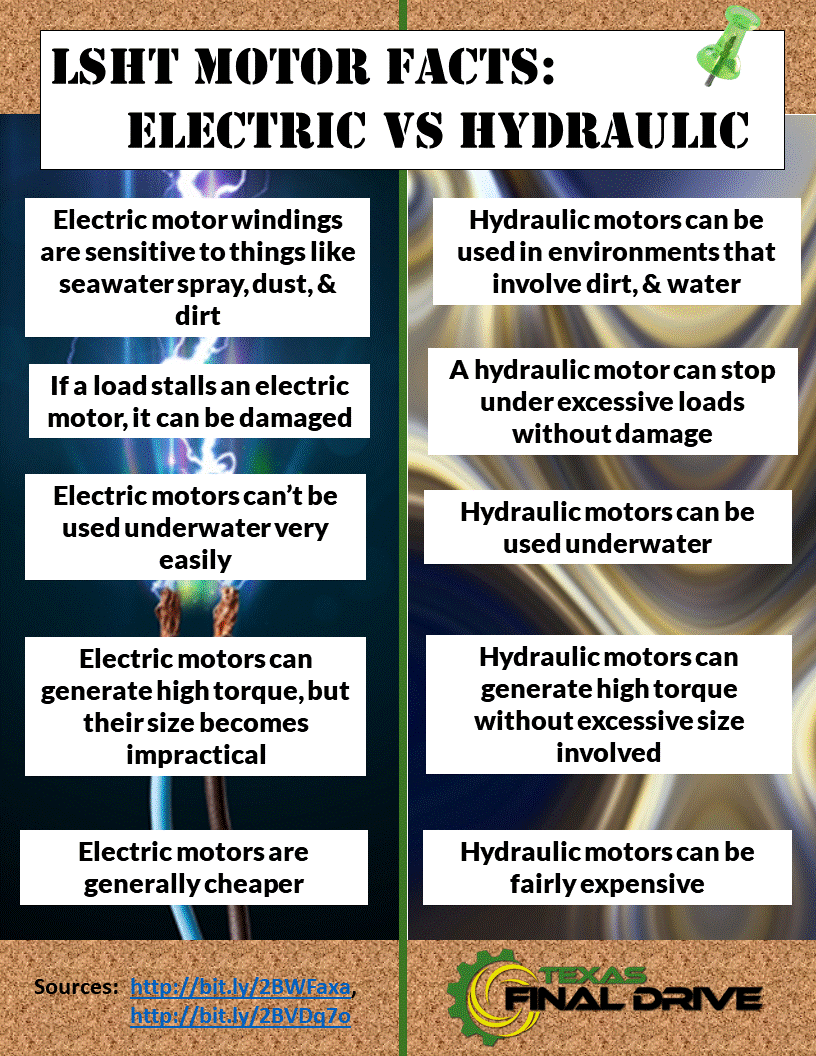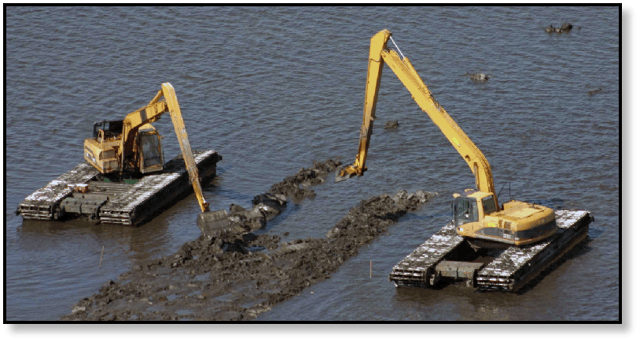While both electric and hydraulic motors are used on construction equipment, hydraulic motors appear more common. In this Shop Talk Blog post, you’ll learn how electric and hydraulic motors compare when used for construction and mining equipment and why, ultimately, hydraulic motors are usually the first choice.
LSHT Motors -- Electric versus Hydraulic

Harsh Environments
Because of their windings, electric motors are more sensitive to their environments than hydraulic motors. That means things like salt water spray and dust can cause serious problems and damage them. Hydraulic motors, on the other hand, are designed in such a way to survive in some of the harshest work environments out there. That’s one of the reasons why you see so many hydraulic motors used on construction, mining, and agricultural equipment.
Stalling Loads
Electric motors don't respond well to loads that can stall them. If an electric motor is stalled by a heavy load, there is a good chance that permanent damage will be done. Hydraulic motors may stall under an excessive load but will suffer no permanent damage. If excessive loads are likely to be an issue, hydraulic motors would be the better choice.
Underwater Service
When it comes to working underwater, hydraulic motors are used because they are engineered to seal fluids in, which means that water will be sealed out. However, it is extremely difficult to seal an electrical motor for underwater use. If a machine will be partially or wholly submerged underwater, as in the case of excavators used to dredge swamps, hydraulic motors are the better choice.

Generating Torque
Electric motors can generate tremendous amounts of torque without the losses associated with torque-multiplying gear systems. The problem is that the size of these high-torque electrical motors is impractical for use on construction equipment. Hydraulic motors can generate equally tremendous amounts of torque at a fraction of the size. Some hydraulic motors have been specifically designed high torque and power density. If there is limited space for a high torque motor, then a hydraulic motor would be best.
Conclusion
Hydraulic motors can work in places that electric motors cannot. They are ideal for many of the rugged environments and working conditions faced by construction, mining, and agricultural equipment on a daily basis. Under certain conditions, hydraulic motors are even considered much more efficient than electrical motors. If you want to learn more about LSHT hydraulic motors and electrical motors, check out this excellent article from Machine Design that we used as a source for this blog post.
Texas Final Drive is your partner in providing new or remanufactured final drive hydraulic motors from a single mini-excavator to a fleet of heavy equipment. Call today so we can find the right final drive or hydraulic component for you, or check out our online store to find your O.E.M. manufacturer brand motor now.

